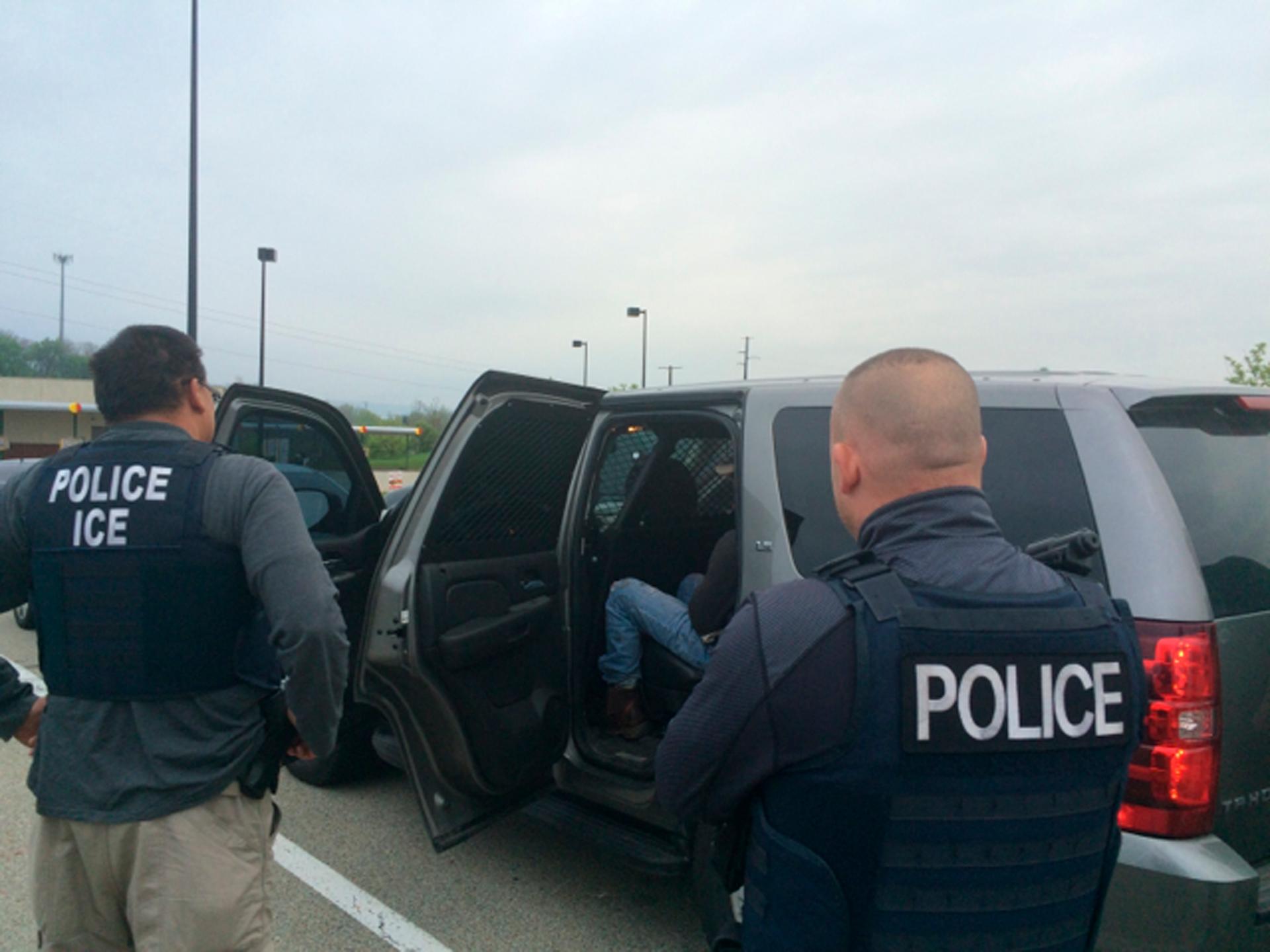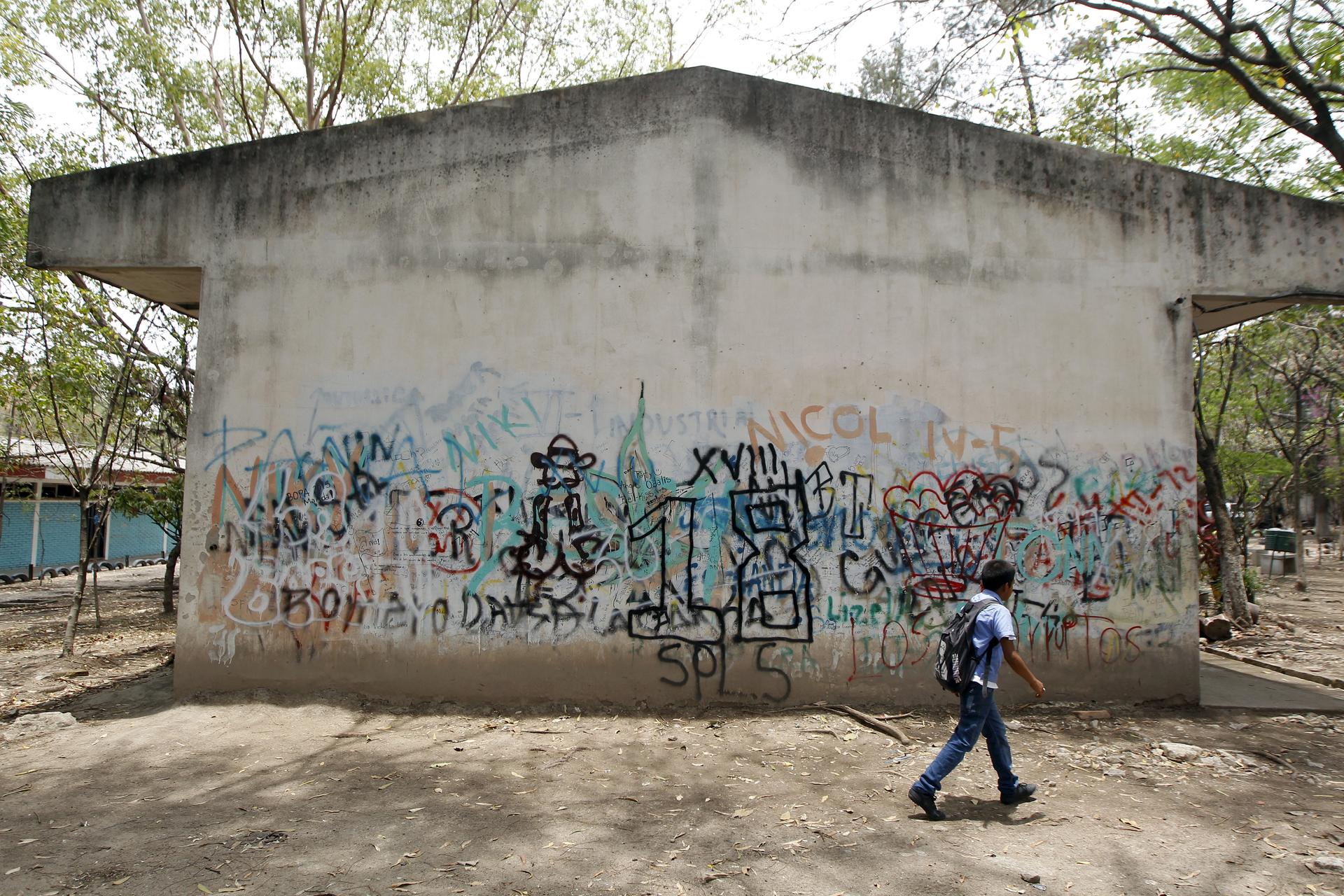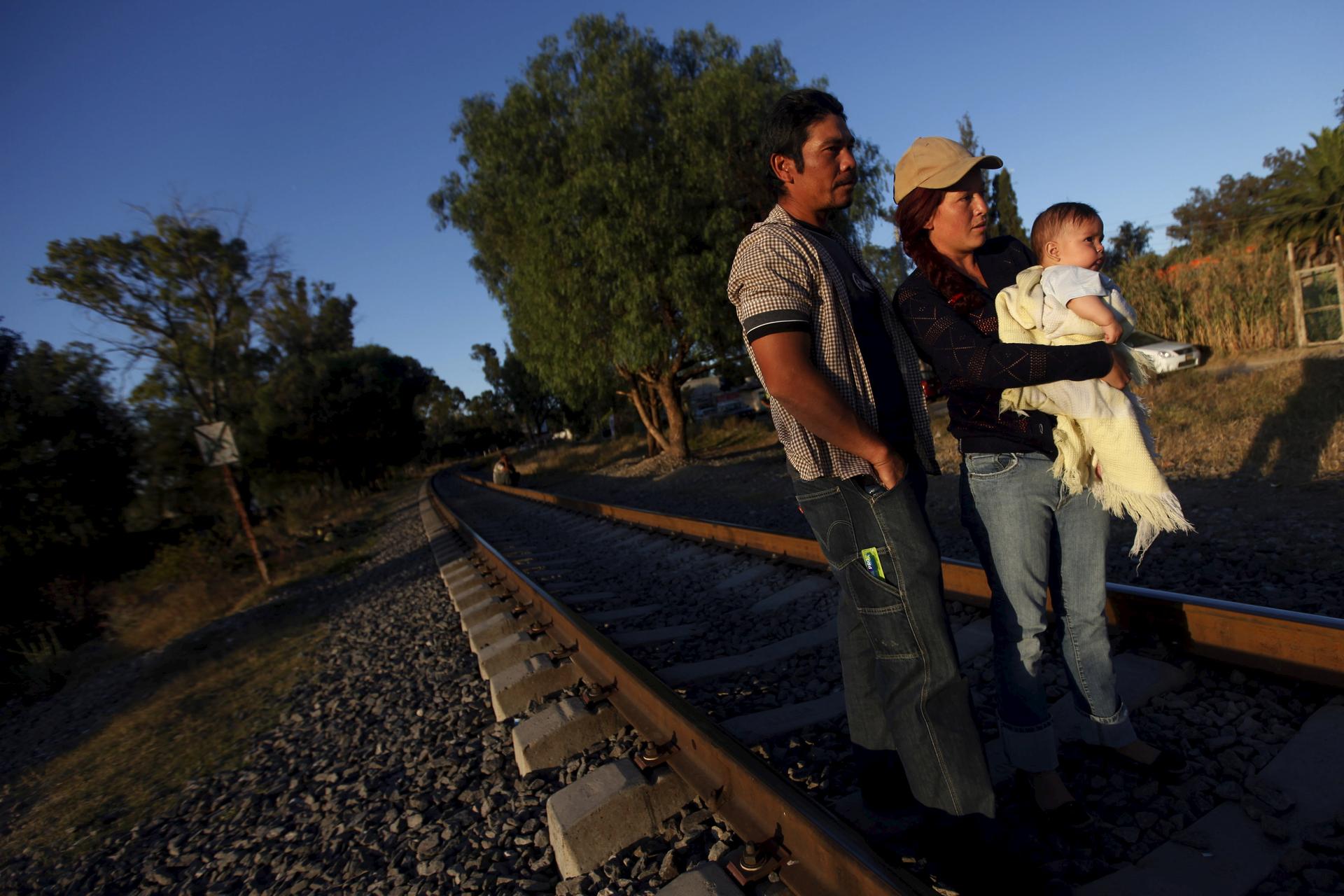Fear of immigration raids? This Honduran woman says she would cross the border again.
A family from El Salvador makes their way through Mexico, migrating to the United States. The number of Central Americans reaching the US border is back up this year as violence spikes in parts of the sub-region.
Summer is coming and it’s also a time when more people tend to cross the US-Mexico border. But this year, fewer Mexicans are crossing and more are arriving from Central America, many fleeing violence. In response, news recently broke that US immigration agents are ramping up deportations through targeted raids.
But does this strategy work for deterring migration?
It does strike fear into the heart of Sandra, a mother from Honduras, who now lives in Oakland. "I’m afraid agents are going to knock on our door, deport us to Honduras," she says. Sandra and her two young sons crossed the Mexico-Texas border after Jan. 1, 2014, and she has heard the news that Immigration and Customs Enforcement, or ICE, is targeting immigrants who arrived after that time.
Thing is, Sandra really shouldn'tworry about being rounded up. She has a lawyer and an open asylum case, which protects her, for now, from deportation. In some ways, Sandra is lucky. Many people in her situation lack a lawyer. Still, she says the news and overall confusion about how America's complex immigration laws work have her blood pressure soaring and afraid to open the door.
"What if I don’t get asylum?" she wonders. Plus, her husband is undocumented, too. Because of this uncertainty, Sandra asks to use her first name only.
Her lawyer Laura Polstein, with Centro Legal de la Raza in Oakland, tries to calm her, but says Sandra's fear is typical.
"People become very afraid and the rumors start up," says Polstein. "Before an arrest even happens, the harm is already done."
Yet Polstein says that what a lot of people miss is that the raids are targeting immigrants who have lost their court case and have been ordered deported by a judge.
Also: One Utah group gets prepared, connected for immigration raids

That’s true, says Immigration and Customs Enforcement. In an emailed statement provided by spokeswoman Virginia Kice, the agency stressed that its operations are "limited to those who have been ordered removed … and have not pending appeal or pending asylum claim for asylum or other humanitarian relief under our laws." The agency also added that it must enforce the law and prioritize border security.
But John Sandweg, who ran ICE for several years, says these raids, which are not very widespread in reality, end up scaring entire communities in the US. And they don’t stop people from coming, he says.
"What’s going on now is not working," says Sandweg. "Since a lot of these actions have been implemented, they've done nothing to dissipate the growth in the number of people attempting to cross. We are dealing with an unprecedented humanitarian crisis in Central America. The solution to this is not in what we do here, but is in what happens down there and how we can help."
More: For some Central Americans, fear of deportation is a 'recurring nightmare'

I ask Sandra about this, too. If she had heard about the raids beforehand, would she have still left for the United States? Yes, she says, and then tells me whyshe left Honduras. It’s when the gangs came to recruit her son.
"Hand him over or we’ll kill you," she says they told her. Her son was 12 at the time and she refused their demands. But she also knew their threats were real in Honduras, as well as places like El Salvador and Guatemala, with some of the world's most extreme rates of violence, much of which is fueled by gangs. Within hours, Sandra fled with her kids to another city in Honduras. But she still felt unsafe and did not want to put the family they stayed with at risk, so she decided to head north, to Oakland, where her husband has worked for several years as a plumber, sending cash home to support his family.
But first Sandra and her sons had to bus through Mexico. That’s when a group of armed men stopped them near Tampico, in Tamaulipas state, considered one of the country's most dangerous places because of the presence of organized criminal groups.
"They asked each passenger for the password," she said. You had one if you had paid protection money beforehand. Sandra did not have the money to do that. She says the men took her, her boys and about 15 other migrants off the bus and stashed them in a room with others who had been kidnapped. Sandra says they slept on a concrete floor, ate little, and were under constant watch by men with assault weapons.
During that time, the men, who Sandra said identified themselves as belonging to the Gulf Cartel, called her husband and relatives in Honduras and demanded $4,500 ransom — or else.
The family hustled and, within three days, paid the ransom, Sandra says. After that, Sandra says she and her sons were released. They crossed the border at Texas, and with her kids dehydrated and exhausted, Sandra waved down the first car she saw — a cop who took the family to immigration officials. Next, they spent months in detention and now hope to win asylum and stay in Oakland.
Sandra says that while she remains fearful of deportation, that fear does not compare to what she and her kids faced in Honduras and in Mexico.
She says that she would do it all again for her kids’ safety. Wouldn’t think twice about it.
I also ask her what the United States shoulddo? Many people do not want migrants crossing the border illegally. Sandra understands this and says, "We wouldn’t last more than three days back in Honduras before the gangs come for us. They don't forget," she says. "We’re refugees."
Meantime, her kids are doing well here. On a recent Saturday morning in their tiny one-bedroom apartment, her youngest son watches Clifford the Big Red Dog on an old television. Sandra’s olderson, the one the gang tried to recruit, is at his school's science fair.
Sandra beams when talking about him. "He’s getting honors," she says. "He's so intelligent."
Now, she hopes her kids can stayin the US and not worry about being sent back.
Our coverage reaches millions each week, but only a small fraction of listeners contribute to sustain our program. We still need 224 more people to donate $100 or $10/monthly to unlock our $67,000 match. Will you help us get there today?
